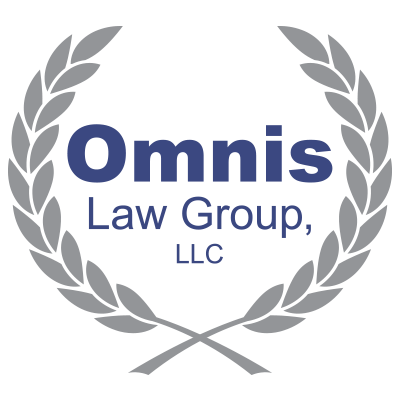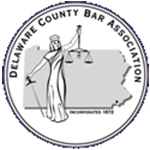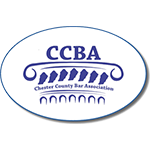 If you have formed or do business under a corporation, limited liability company, limited partnership, or other entity, you need to be aware of new federal reporting requirements imposed under the federal Corporate Transparency Act (CTA).
If you have formed or do business under a corporation, limited liability company, limited partnership, or other entity, you need to be aware of new federal reporting requirements imposed under the federal Corporate Transparency Act (CTA).
The CTA creates a database of “Beneficial Ownership Information” effective January 1, 2024. The stated purpose of the law is to combat money laundering and the concealment of illicit money through shell companies in the United States. Under the CTA nearly every small business in the U.S. will be swept up in the Act’s new reporting requirements.
With some exceptions (discussed below) every existing, amended, or new corporation, limited liability company, or other entity created by filing registration documents with a Secretary of State must file with Financial Crimes Enforcement Network (FinCEN).
The purpose of this article is to alert our small business clients about these reporting requirements to avoid substantial penalties for non-compliance.
Who Is Required to Report under the CTA?
Virtually every small business is required to report under the CTA, including:
- corporations,
- limited liability companies,
- limited partnerships,
- limited liability limited partnerships,
- non-profit corporations (unless the entity is a 501(c) and exempt under 501(a) of the IRS Code),
- business trusts,
- any other entity that is created by the filing of a document with the Secretary of State or Native American tribe.
Thus, any privately held, for-profit business operating through a limited liability entity in the United States will be subject to the reporting requirements of the CTA unless it satisfies the definition of a “large operating company” or qualifies for another exemption.
What Companies Are Exempt from Reporting Requirements?
The proposed regulations identify more than 22 different types of exempt entities. Companies already heavily regulated, such as insurance, banking, financial brokerages, exchanges, clearing agencies, public accounting firms, political organizers, investment advisors, accountants, and Commodity Exchange Act registered agencies, are usually going to be exempt. Public companies issuing securities under the Securities Exchange Act of 1934 will also be exempt.
The CTA also exempts from reporting requirements large companies that employ more than 20 full-time employees in the United States, have a physical office in the United States, and have filed tax returns for the prior year reporting more than $5 million in gross receipts or sales, excluding gross receipts or sales outside the United States.
What if my company is inactive?
If your company is not actively engaged in operations, it may be exempt from the reporting requirements of the CTA. An entity is considered “inactive” under the CTA if it was in existence on or before January 1, 2020, and:
- is not engaged in active business,
- is not owned by a foreign person (directly or indirectly, wholly, or partially),
- has not experienced any change of ownership in the preceding 12-month period,
- has not sent or received any funds in an amount greater than $1,000 either directly or through any financial account in which the entity or any affiliate of the entity has an interest in the preceding 12-month period, and
- do not otherwise hold any kind or type of assets (including an equity interest in any limited liability entity).
What Information Must Be Reported under the CTA?
The CTA requires reporting companies to disclose:
- the legal name of the reporting company,
- any trade name or “doing business as” name of the reporting company,
- the business street address,
- state of formation,
- the taxpayer identification number (TIN),
- Each beneficial owner, and
- Each “company applicant”
Who are Beneficial Owners and Company Applicants?
A beneficial owner is “any individual who, directly or indirectly, either exercises substantial control (see below) over such reporting company or owns or controls at least 25 percent of the ownership interests of such reporting company.”
Determining who is a “beneficial owner” is highly fact specific and, at times, may not always be clear. Terms such as substantial control or ownership interests have been broadly defined with the intent of capturing the various ways, directly or indirectly, an individual can exercise control over or own an interest in an entity. As a result, analysis may be required to identify “beneficial owners” whose information is subject to reporting by the reporting company, and each company may have several beneficial owners.
A company applicant is not only the lawyer or paralegal who files the organizing documents (such as articles of incorporation) for establishing a domestic company (or the registration of a foreign entity) with a State or Tribal authority, but also a partner, senior lawyer, or any other person directing the activity of the paralegal or associate undertaking the organization or registration. The CTA regulations do not require a reporting company to report any information about a company applicant if that reporting company was in existence prior to January 1, 2024.
How Is “Substantial Control” of a Reporting Company Determined?
For purposes of defining a “beneficial owner,” substantial control over a reporting company is defined to include someone who is or has:
- a senior officer of the reporting company,
- authority over the appointment or removal of any senior officer or a majority or dominant minority of the members of the board of directors (or similar body),
- direction, determination, or decision of, or substantial influence over, important matters affecting the reporting company as more specifically set forth in the proposed regulations, and
- any other form of substantial control over the reporting company.
The proposed regulations provide additional guidance on when an individual’s authority will require reporting information regarding that individual. Please consult us if you have any questions regarding what substantial control means.
What if my Ownership Interest is indirect – through a trust or other company?
Direct ownership is not the only way someone can be a beneficial owner. Beneficial ownership may exist when someone shares ownership or does not directly hold the ownership interest, such as:
- joint ownership,
- control of the entity that owns or controls the reporting company, and
- having an interest as a settlor, trustee, or beneficiary of a trust or similar arrangement that holds the ownership interest in the reporting company.
If you have a situation where there is joint ownership or indirect ownership or ownership through a trust or similar arrangement, please contact us.
Are there any exemptions for beneficial owners?
There are four exemptions to who may be considered a beneficial owner. They include:
- A minor child, provided that a parent or guardian’s information is reported,
- An individual acting as a nominee, intermediary, custodian, or agent on behalf of another individual,
- An individual acting solely as an employee of a reporting company in specified circumstances,
- An individual whose only interest in a reporting company is in future interest through rights of inheritance and a creditor reporting company.
What Information Must Be Reported Regarding Beneficiaries and Company Applicants?
In the case of every individual who is a beneficial owner or a company applicant with respect to a reporting company, the reporting company must disclose:
- the full legal name of the individual,
- the individual’s date of birth,
- the complete address of either:
- such individual’s business, in the case of a company applicant, or
- in the case of any other individual, the residential street address used by that individual for tax residency purposes, and
- either the passport number, driver’s license number, or other unique identifying number from a non-expired identification document issued to the individual by a State, local, or Tribal government for identification purposes.
Additionally, the reporting company must also provide a picture ID for the beneficial owner or company applicant that includes the disclosed identification number.
When Must I Report?
The CTA is effective on January 1, 2024. Reporting companies existing on that date must file their initial reports within one year or by January 1, 2025.
Reporting companies created after January 1, 2024 must file within 30 days of receipt of notice of their creation or registration. However, FinCEN has proposed to extend the initial filing deadline for BOI reports from 30 to 90 days for entities created or registered in 2024.
Also, reports must be updated within 30 days of a change to the beneficial ownership, e.g., through the sale of a business, merger, acquisition, or death, or 30 days upon becoming aware of or having reason to know of inaccurate information previously filed.
In the case of an entity that no longer meets the criteria for exemption, the initial report is due within 30 calendar days after the date the exemption criteria are no longer satisfied.
How and in What Form Is Reporting Disclosed?
The proposed CTA regulations do not provide guidance as to the manner or form reporting is to be done. FinCEN’s filing system is currently under development and will not be available until January 1, 2024.
What if I am unclear on what I or my company should do now?
Please ask your business attorney for counsel. If you are unrepresented, we are accepting new clients and are assisting businesses with the issues surrounding filing for compliance with the Corporate Transparency Act.
The proposed CTA regulations are not final. Additionally, the above is merely a summary of the CTA and the proposed regulations. The above is not intended to constitute legal advice. If you have any questions, please consult the attorneys of Omnis Law Group regarding the CTA and its application to your business.
Val DiGiorgio of Omnis Law Group, is an experienced Business Attorney. Val can be reached at VFD@Omnislawgroup.com, you can contact the firm online or call 484-81-OMNIS to set up a consultation.









